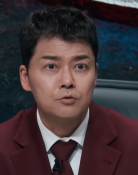Is a Power Structure Shift Leading to Friction Between SNU and Government?
Is a Power Structure Shift Leading to Friction Between SNU and Government?
Posted May. 23, 2005 03:42,
The advancement of government officials who graduated from local universities is one of the outstanding characteristics of the Roh Moo-hyun administration. It means a relative setback for alumni of Seoul National University (SNU)who usually enjoy key positions in Cheong Wa Dae and national policy committeesand a weakening of the voice of SNU professors.
This change can be depicted as an example of a power shifting in the governments power structure which is, some argue, a fundamental cause of a recent conflict between the government and SNU over the college admissions system.
Yesterday, Dong-A Ilbo examined the origins of officials who are ministers, vice ministers, members of Presidential Commission on Policy Planning and 11 national policy committees, and advisors of the president, which are highlighted by the advancement of local figures and professors of local universities.
Out of 88 officials who have been appointed as vice ministers or ministers since the inauguration of the current government, 12 officials (13.7 percent) graduated from local universities, twice more than the average of previous regimes7.4 percent during the Park Chung-hee administration after the Yusin period (military rule), and 6.2 percent during the Kim Dae-jung administration. There is no administration except the current government that had over 10 percent until now.
Even though SNU graduates account for the largest share, 51.1 percent, of ministerial and committee appointments in the current Roh administration, compared to 69.8 percent during the Kim Young-sam administration, the proportion has dwindled remarkably.
The shift from SNU graduates to non-SNU graduates is largely contributed to by the advisors of the president and members of national policy committees, which deal with short-term and long-term policy challenges.
Among 14 advisors (senior secretaries and presidential aides), who are in office now, only four are SNU graduates.
The number of professors who have been appointed as members of the Presidential Commission on Policy Planning and 11 national policy committees is 126. Of them, 68 (54 percent) are from local universities, and just 10 SNU professors are currently involved in these committees.
Meanwhile, the Rhee Syng-man administration and the Park Chung-hee administration (before the Yusin period) preferred those who finished their studies abroad because of the lack of human resources at that time and thus, most of the vice minister and minister-level positions were occupied by them. However, with the end of Yusin period of President Park Chung-hee, SNU graduates overwhelmed most key government positions.
With military academy graduates increasingly advancing into minister and vice-minister level positions (accounting for about 10 percent of the total seats), the majority of high-ranking positions (from 54.3 percent to 74.4 percent) are dominated by SNU and academy graduates. This was characteristic of the administrations of Park Chung-hee (after Yusin period), Chun Doo-hwan, and Roh Tae-woo.
After the Kim Young-sam administration took office, however, the portion of military academy graduates fell to 4.5 percent and that of SNU graduates increased sharply to over two thirds (69.8 percent). During Kim Dae-jungs administration, SNU graduates assumed 47.5 percent of the positions.
For data from Rhee Syng-mans administration to Kim Dae-jungs administration, we referred to the research of professors Lee Si-won and Bae Byeong-yong, whose research was published in a journal, Studies on Public Administration, in Fall 2002 and Fall 2003. Some of data related to the Kim Dae-jung administration and all of the data on the Roh Moo-hyun administration is from research conducted by Dong-a Ilbo.
Jung-Hun Kim Kwawg-Pyo Lee jnghn@donga.com kplee@donga.com







